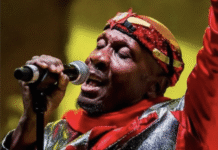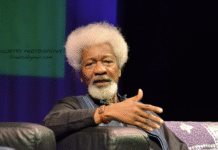
In an op-ed for the New York Times, Afro-Cuban Roberto Zurbano discusses the ongoing struggle with being black in Cuba. In a place where social mobility is attached to skin color, what are Afro-Cubans to do when being systematically shut out of opportunities for advancement? The Revolution promised many changes, but change for Afro-Cubans has been painfully slow, unlike that of their white counterparts. Read an excerpt of Zurbano’s editorial below:
CHANGE is the latest news to come out of Cuba, though for Afro-Cubans like myself, this is more dream than reality. Over the last decade, scores of ridiculous prohibitions for Cubans living on the island have been eliminated, among them sleeping at a hotel, buying a cellphone, selling a house or car and traveling abroad. These gestures have been celebrated as signs of openness and reform, though they are really nothing more than efforts to make life more normal. And the reality is that in Cuba, your experience of these changes depends on your skin color.
The private sector in Cuba now enjoys a certain degree of economic liberation, but blacks are not well positioned to take advantage of it. We inherited more than three centuries of slavery during the Spanish colonial era. Racial exclusion continued after Cuba became independent in 1902, and a half century of revolution since 1959 has been unable to overcome it.
In the early 1990s, after the cold war ended, Fidel Castro embarked on economic reforms that his brother and successor, Raúl, continues to pursue. Cuba had lost its greatest benefactor, the Soviet Union, and plunged into a deep recession that came to be known as the “Special Period.” There were frequent blackouts. Public transportation hardly functioned. Food was scarce. To stem unrest, the government ordered the economy split into two sectors: one for private businesses and foreign-oriented enterprises, which were essentially permitted to trade in United States dollars, and the other, the continuation of the old socialist order, built on government jobs that pay an average of $20 a month.
It’s true that Cubans still have a strong safety net: most do not pay rent, and education and health care are free. But the economic divergence created two contrasting realities that persist today. The first is that of white Cubans, who have leveraged their resources to enter the new market-driven economy and reap the benefits of a supposedly more open socialism. The other reality is that of the black plurality, which witnessed the demise of the socialist utopia from the island’s least comfortable quarters.
Read Zurbano’s op-ed entirely at the New York Times.
Like The Burton Wire on Facebook. Follow us on Twitter @TheBurtonWire.








